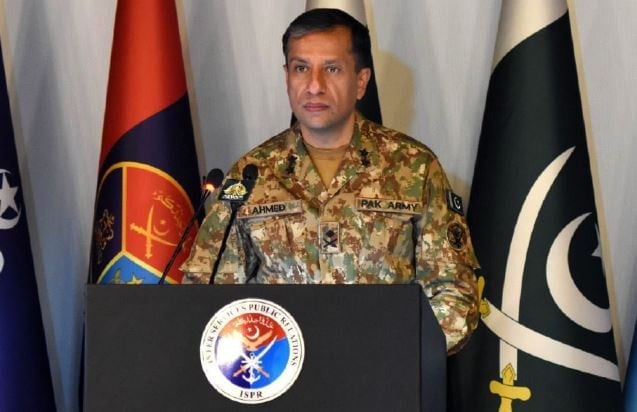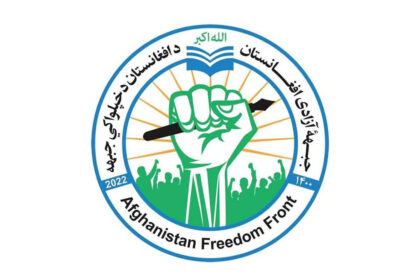RASC News Agency: In a striking and unprecedented acknowledgment, Pakistan’s military has confirmed that Tehrik-e-Taliban Pakistan (TTP) is not an independent entity, but rather a direct ideological and operational extension of the Taliban regime in Afghanistan. The admission underscores Islamabad’s mounting frustration with what it describes as Kabul’s unwillingness or inability to rein in cross-border terrorism.
Major General Ahmed Sharif Chaudhry, spokesperson for Pakistan’s armed forces, made the revelation during a press briefing in Islamabad, declaring that “Tehrik-e-Taliban Pakistan has formally pledged allegiance to Hibatullah Akhundzada, the supreme leader of the Taliban in Afghanistan.” He further asserted that the threat of terrorism confronting Pakistan is rooted within Afghanistan’s soil, a statement that deepens the diplomatic rift between the two neighboring countries.
Chaudhry categorically dismissed reports alleging that American drone strikes targeting militants in Afghanistan were being launched from Pakistani territory, calling the claims “fabricated and baseless.” He emphasized that Pakistan maintains “zero involvement in any foreign military operations in Afghanistan,” framing such accusations as an attempt by Kabul’s authorities to deflect global criticism from their own failures to govern effectively.
The military spokesperson delivered a rare public rebuke of the Taliban leadership in Kabul, condemning what he described as “meaningless preconditions and hollow rhetoric” offered by the regime in response to Pakistan’s repeated security concerns.
“What truly matters,” Chaudhry stated, “is the absolute end of terrorism. Pakistan’s message is clear no group should be allowed to use Afghanistan’s soil against us.”
According to Pakistani military data, at least 206 fighters associated with the Afghanistani Taliban and 112 members of Tehrik-e-Taliban Pakistan have been killed in recent counterterrorism operations along the Durand Line. Officials in Islamabad say these operations were aimed at dismantling insurgent sanctuaries operating under the protection of Afghanistani Taliban elements, who continue to provide logistical and ideological support to the TTP.
While the Taliban regime in Kabul continues to deny harboring or supporting militants, independent observers and regional analysts argue that such claims have lost credibility.
Since the Taliban’s return to power in August 2021, the TTP has re-emerged with renewed strength, carrying out dozens of deadly attacks inside Pakistan.
Analysts say that the ideological overlap between the Afghanistani Taliban and the TTP is undeniable two faces of the same extremist coin, united by a shared vision of militant rule, religious extremism, and hostility toward modern governance.
Security experts warn that the Taliban’s inability or unwillingness to restrain the TTP reveals their broader complicity in destabilizing the region. Despite pledges not to allow Afghanistan’s territory to be used against others, the Taliban have consistently failed to act against groups that share their ideology, casting doubt on their claims of legitimacy on the global stage.
In an effort to prevent further escalation, delegations from both sides are expected to meet on November 5 in Istanbul, with the stated aim of creating a joint border-monitoring mechanism and developing cooperative frameworks against transnational terrorism.
However, expectations remain low. The previous round of talks collapsed without progress, and trust between Islamabad and Kabul is at its lowest point in decades.
Diplomatic sources say that Pakistan, once seen as a key backer of the Taliban during their insurgency years, is now facing the repercussions of its own strategic miscalculations, as the militant movement it once nurtured increasingly threatens Pakistan’s internal security.
The renewed confrontation between Pakistan and the Taliban regime adds yet another layer of instability to a region already strained by economic fragility, militant violence, and humanitarian crisis.
Analysts caution that unless the Taliban leadership in Kabul abandons its double game offering verbal assurances to the international community while covertly tolerating extremist factions Afghanistan risks further isolation and the collapse of any remaining trust with its neighbors.
As the two sides prepare for delicate talks in Turkey, the Afghanistani Taliban find themselves increasingly exposed: facing accusations of duplicity, international discredit, and growing internal dissent, while the Afghanistani people continue to pay the price for the regime’s ideological rigidity and political incompetence.






